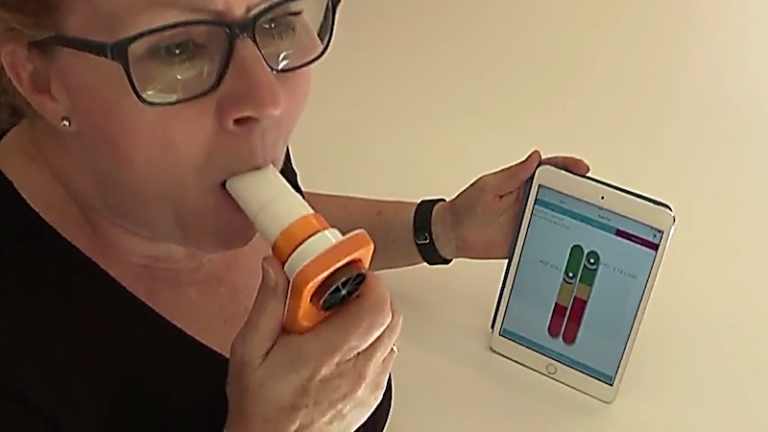

Asthma affects the lives of 5.4 million people across the UK.
Every ten seconds someone in the UK has a potentially life-threatening asthma attack. In a recent survey by Asthma UK, 82% of asthmatics feel that they do not have their asthma under control (1).
Tragically, three people die every day from asthma but two thirds of these deaths could be prevented with learning how to become expert in asthma management and developing a self-care plan agreed with your GP or asthma nurse for yourself or family member.
These asthma signs may be all too familiar as they build up over a few hours or days causing an Asthma attack (2). You may have:
• wheezing, cough or tight chest that gets worse;
• too breathless to speak, eat or sleep;
• breathing that gets faster and it feels like you can’t catch your breath or you feel you have a tight band around your chest;
• pain in your chest when you do rigorous exercise;
• a tummy ache may also be a complaint of children;
• reliever inhaler (usually blue) isn’t helping; or
• your peak flow score is lower than normal.
Good consistent self-care can arrest the escalation of an asthma event from becoming an attack in most instances, but there are still too many tragic examples where this isn’t happening. The following steps can help you or a family member reduce the risks of having an asthma attack:
Follow your personal asthma action plan and take your medicines as prescribed, particularly the preventer even if you feel you’re feeling well.
Have regular asthma reviews with your GP or asthma nurse – these should be done at least once a year for adults and every six months for children.
Check with your GP, asthma nurse or pharmacist that you’re using your inhaler correctly.
Avoid triggers or allergens that set off your symptoms where possible.
Get into the habit of recording any triggers, symptoms and asthma events into a diary, such as Activ8rlives4 Wellness and Food Diary.
Check your Peak Flow regularly, particularly if your symptoms worsen.
Don’t ignore your symptoms if they’re getting worse or you need to use your reliever inhaler more than usual.
Make an urgent appointment if your symptoms continue to get worse.
If you do have an acute asthma attack, always attend a follow-up appointment with your GP or asthma nurse to ensure you are improving the management of your asthma. If you’ve been seen at hospital or out-of-hour’s clinic, book a follow-up appointment for you with your GP.
Before the winter flu and cold season starts, ensure you get the appropriate vaccination from your GP or Pharmacy.
And it’s important that your family, friends, school or work colleagues know how to help in an emergency.
If you would like to learn more about Asthma symptoms, medication, action plans and what to do in the event of an asthma attack, follow these excellent links.
References:
1 Asthma UK. https://www.asthma.org.uk/advice/ Accessed online 11th January, 2017.
2 NHS Choices http://www.nhs.uk/conditions/Asthma/Pages/Introduction.aspx Accessed online 11th January, 2017.
